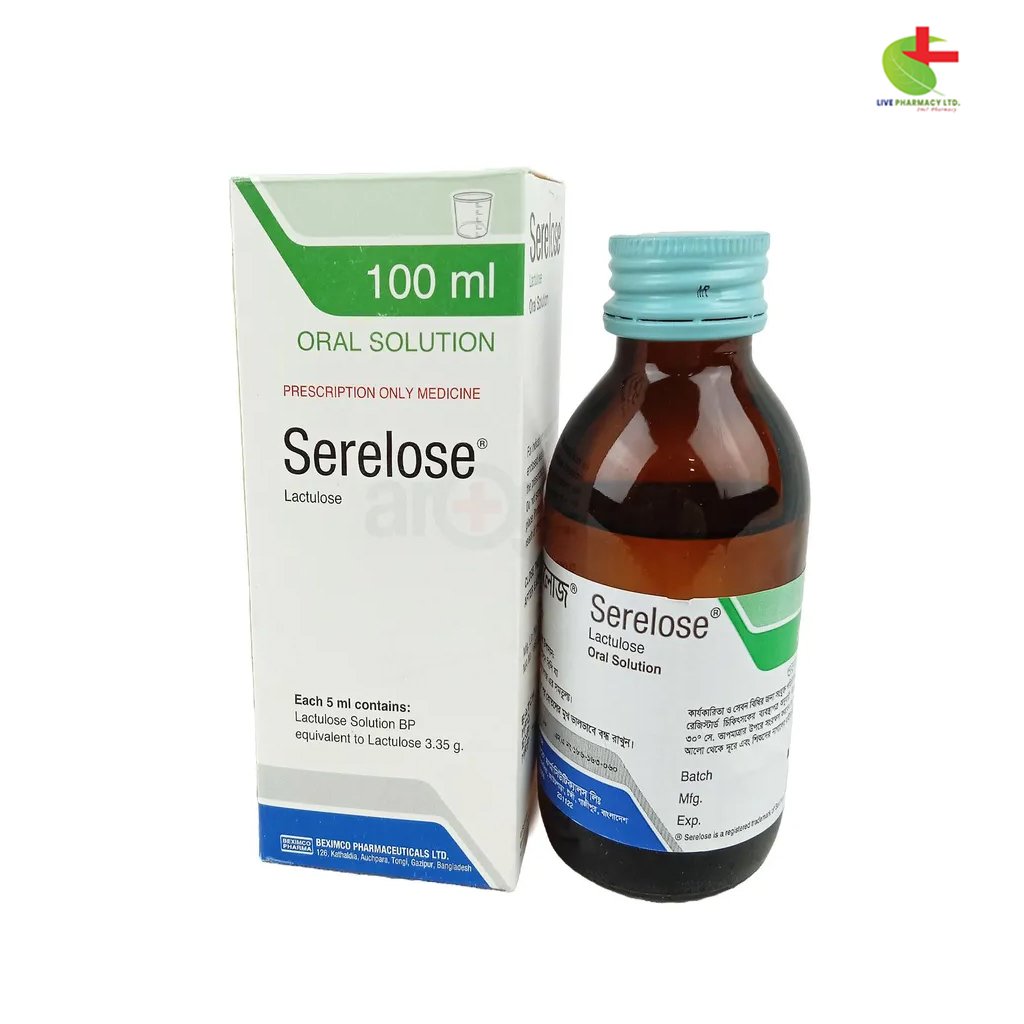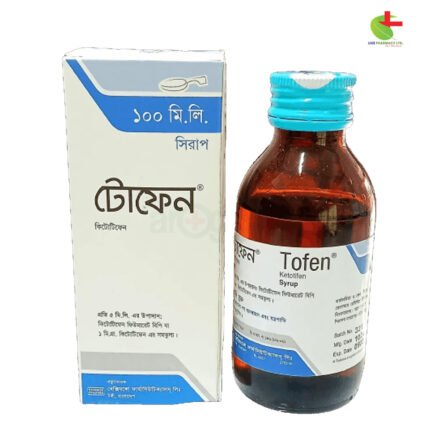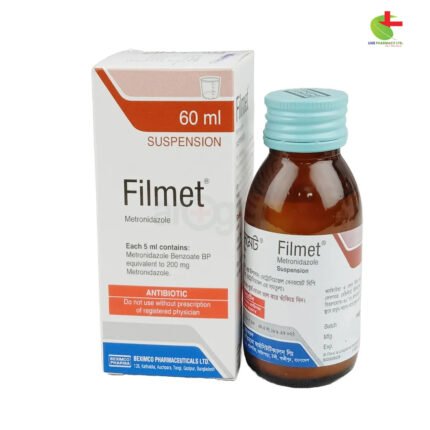Serelose
130.00৳ Bottle (100 ml)
- Serelose is a hyperosmolar laxative used to treat chronic constipation and restore intestinal flora.
- It helps manage increased blood ammonia levels in liver disease.
- Containing lactulose, Serelose draws water into the bowel, softening stools and enhancing bowel movements.
- It is typically used when dietary and lifestyle changes are insufficient for relief.
 Brand
Brand
|
Beximco Pharmaceuticals Ltd |
|---|---|
 Generics
Generics
|
Lactulose |
 Type
Type
|
Solution |
Indications
- Chronic Constipation: Use Serelose when dietary fiber, adequate liquids, and physical activity are insufficient to relieve chronic constipation.
- Intestinal Flora Disturbances: Effective for restoring intestinal flora after long-term antibiotic use, as well as in conditions like gall bladder diseases, colitis, diverticulosis, and megacolon.
- Increased Blood Ammonia Levels: Useful in managing hyperammonemia associated with hepatopathy and portal-systemic encephalopathy.
Description
Serelose is a hyperosmolar laxative designed to treat constipation. It is a non-absorbable disaccharide that draws water into the bowel, causing fluid accumulation and stool softening, which promotes bowel movement.
Pharmacology
Serelose contains lactulose, a synthetic disaccharide that is metabolized in the colon by bacteria. This process produces organic acids, lowers the pH in the colon, retains water through osmotic effects, and enhances peristaltic activity. Minimal absorption of lactulose means its primary therapeutic action occurs in the colon.
Dosage & Administration
- For Constipation:
- Adults: 3-6 teaspoons daily initially, reduced to 1½-6 teaspoons daily for long-term use.
- Children up to 14 years: 3 teaspoons daily initially, reduced to 1-2 teaspoons daily for long-term use.
- Infants and Toddlers: 1-2 teaspoons daily initially, then 1 teaspoon daily for long-term use.
- For Intestinal Flora Damage:
- Adults: 1-2 teaspoons daily.
- Children: 1 teaspoon daily.
- For Blood Ammonia Reduction:
- Hyperammonemia in Hepatopathy: Up to 18-30 teaspoons daily.
- Portal-Systemic Encephalopathy: 6-9 teaspoons hourly for rapid laxation, then reduce as needed.
Interaction
No significant drug interactions with Serelose. Note: Potassium deficiency from misuse can enhance the effects of cardiac glycosides.
Contraindications
- Avoid if hypersensitive to galactose or lactose.
- Contraindicated with a galactose-free diet, gastro-cardial symptom complex, or suspected intestinal obstruction.
Side Effects
- Possible flatulence, cramping, and abdominal discomfort at the start of treatment; these usually resolve with dose adjustment.
- Overdose may cause diarrhea and electrolyte loss, primarily potassium.
Pregnancy & Lactation
- Pregnancy: FDA Category B; no adverse effects noted in studies. Use during pregnancy should be decided by a healthcare professional.
- Lactation: Safety during breastfeeding is not well established; consult a doctor.
Precautions & Warnings
Administer with caution in patients intolerant to Serelose. Higher doses used for treating (pre) coma hepaticum should be carefully considered for diabetics.
Overdose Effects
Overdose may cause diarrhea and abdominal cramps. No major reports of accidental overdosage have been documented.
Therapeutic Class
Osmotic Purgatives
Storage Conditions
Store in a dry place away from light and heat. Keep out of reach of children.













Reviews
There are no reviews yet.